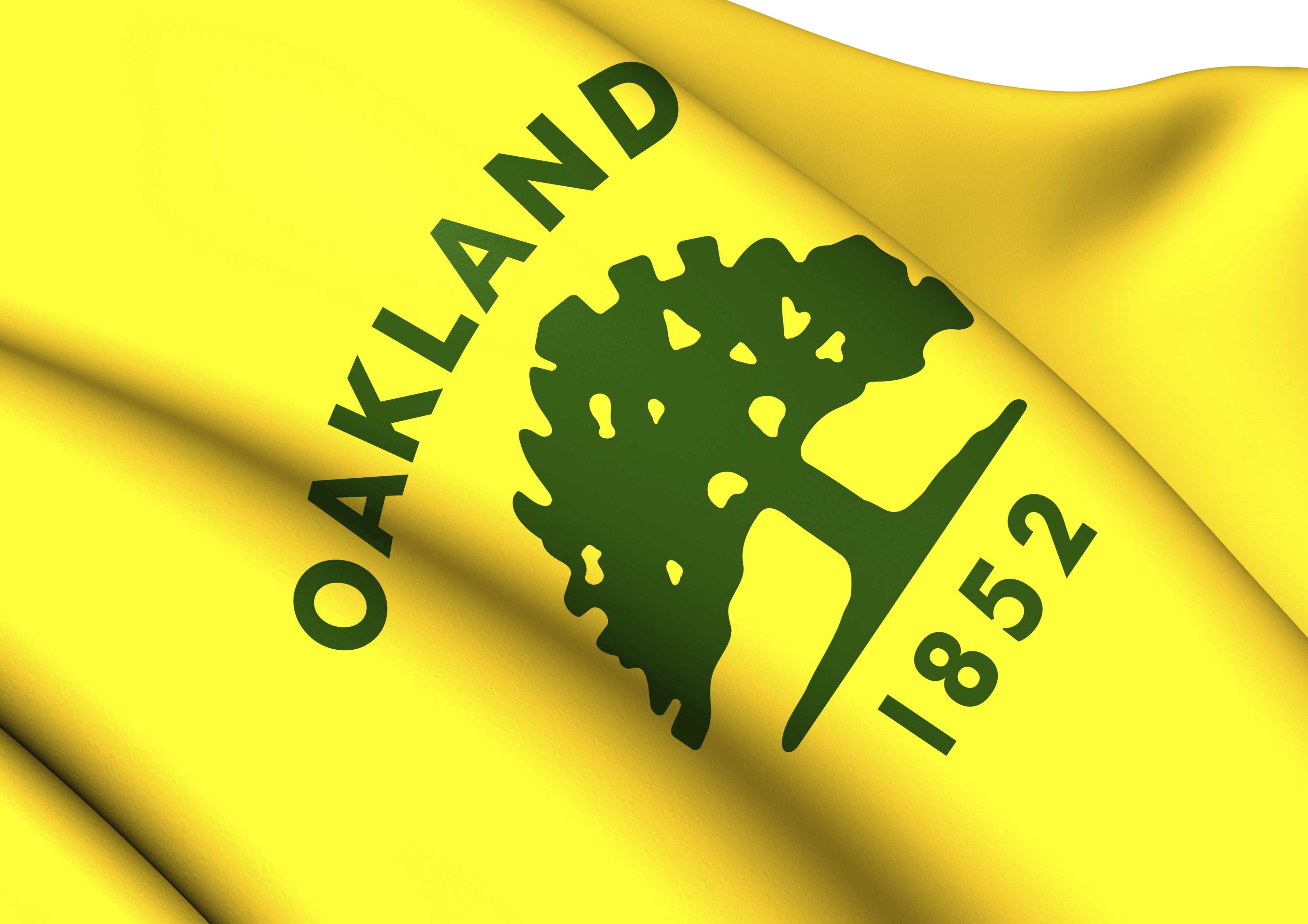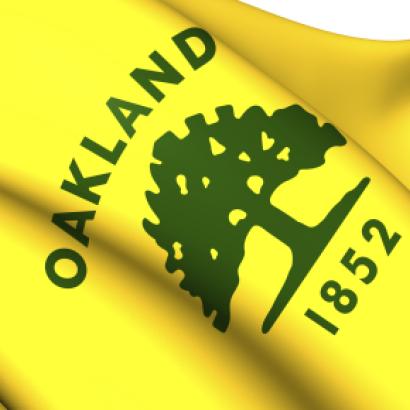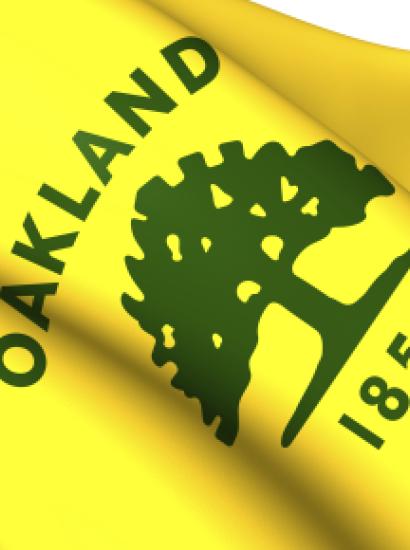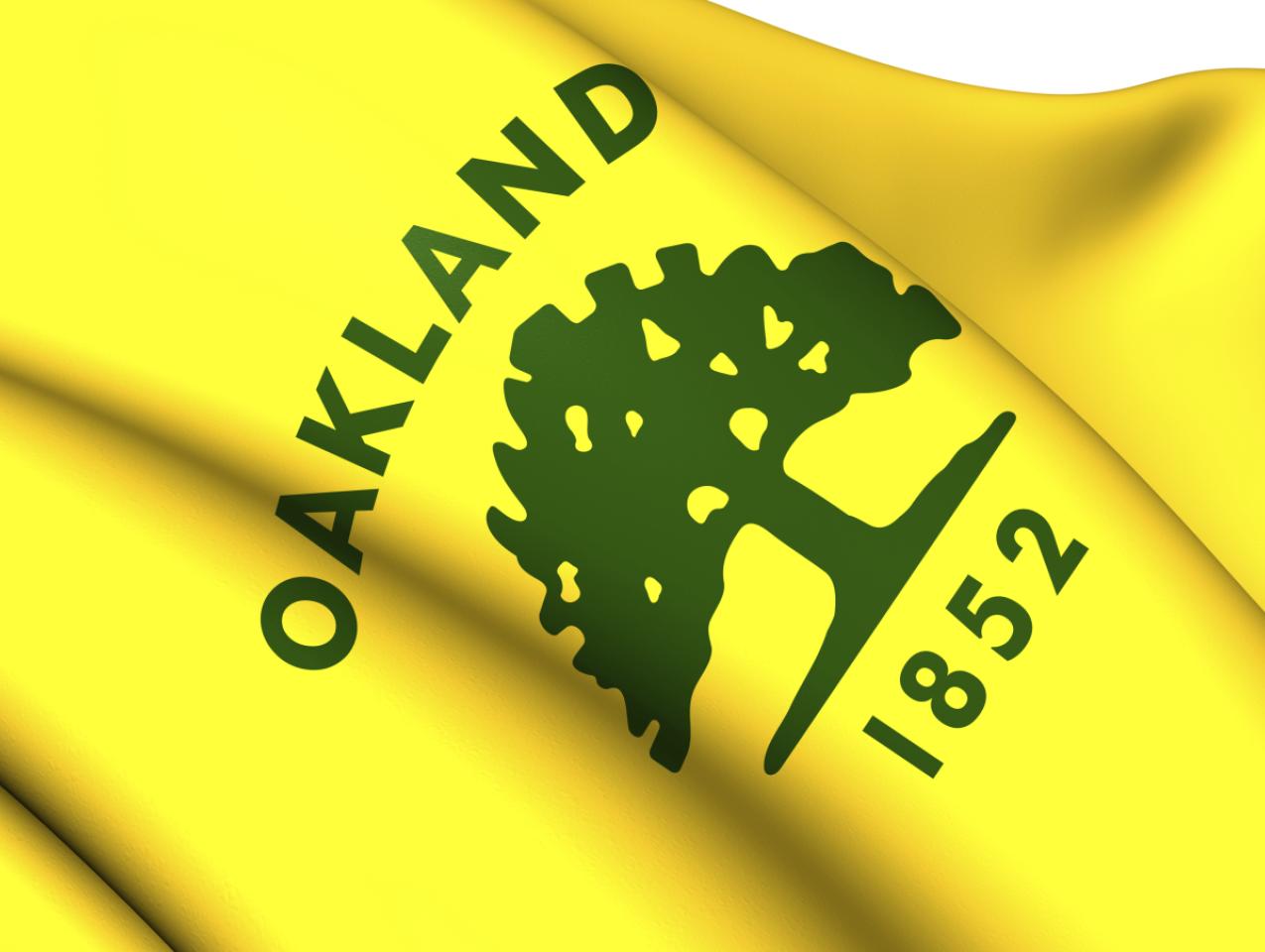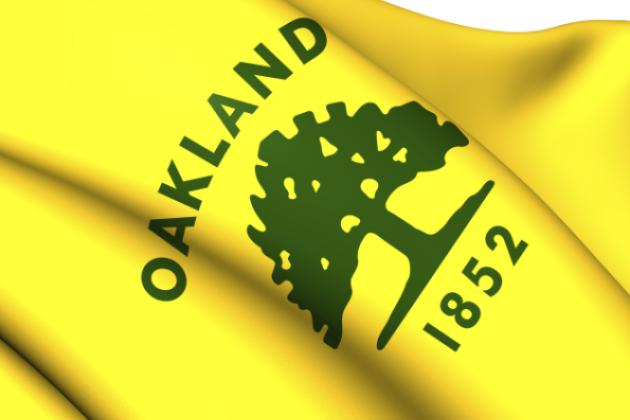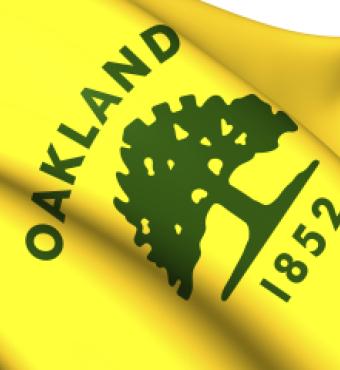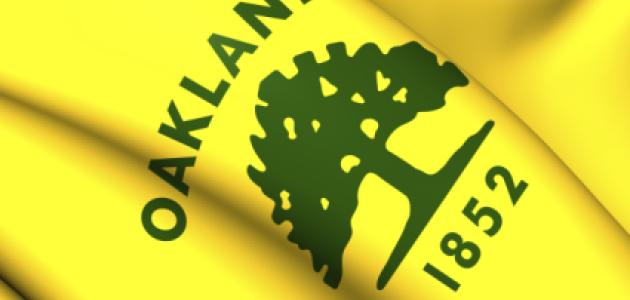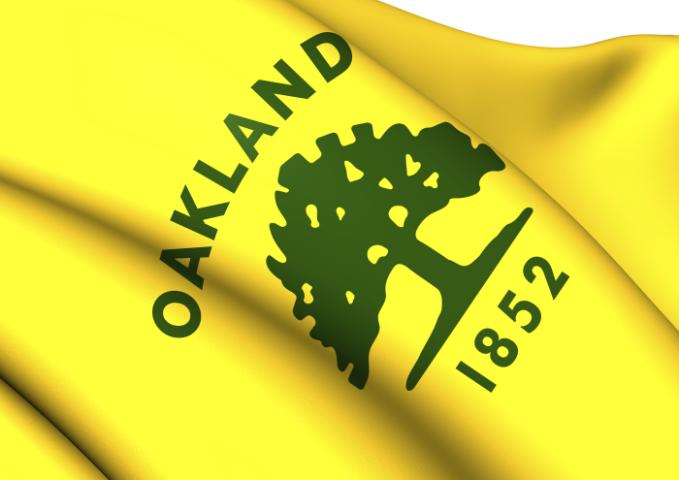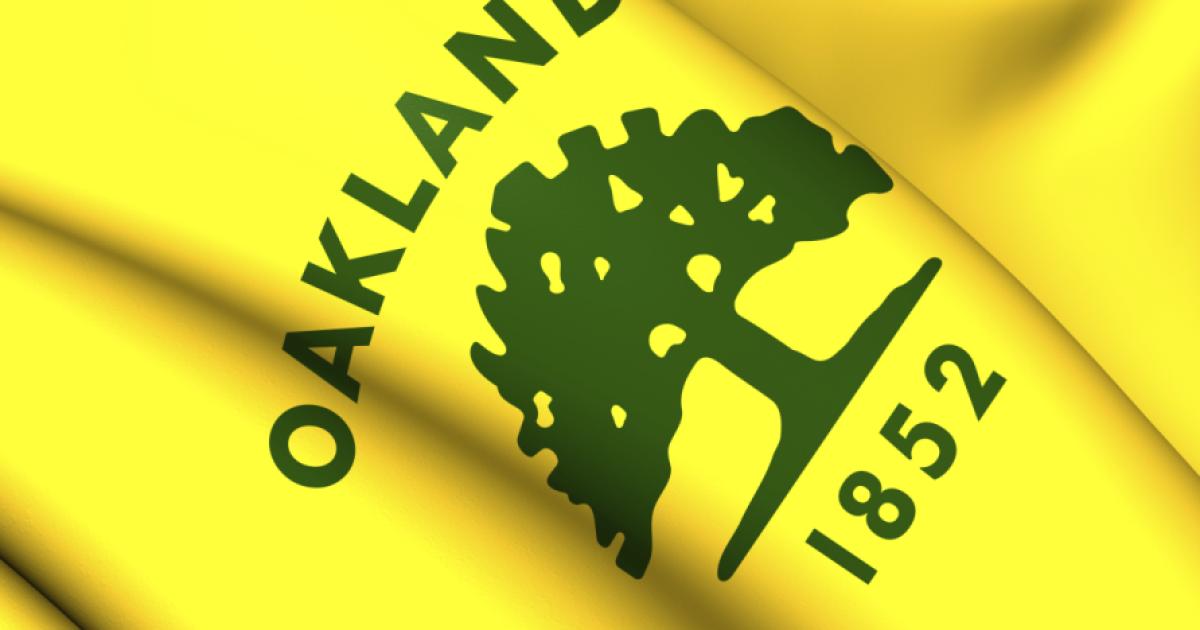- Politics, Institutions, and Public Opinion
- State & Local
- California
Arguably the most famous thing ever said about Oakland, California’s eighth most populous city, comes from author and native daughter Gertrude Stein, who acidly observed: “there is no there there.”
In fairness, there is plenty of “there” to the city on the eastern terminus of the San Francisco–Oakland Bay Bridge—multiple ways in which it’s impacted the California landscape.
Oakland’s Children’s Fairyland theme park, for example, has long been rumored to have influenced the design of Disneyland. This January, Oakland joined Yorba Linda as the only two California communities that were childhood homes of future US vice presidents (that would be Kamala Harris and Richard Nixon, raised a century ago in Orange County’s Yorba Linda).
The city’s also the birthplace of Tom Hanks, the Black Panther Party, and the mai tai cocktail.
One other way that Oakland stands out—and it’s a dubious distinction: as a departure point for professional sports franchises.
Two years ago, the NBA’s Warriors crossed the bay for a state-of-the-art arena in San Francisco’s Mission Bay. Last year, the NFL’s Raiders left Oakland and California altogether for a new home in Las Vegas.
Now, in the superstitious tradition of celebrity deaths and airplane crashes, comes a third piece of bad sporting news for the Bay Area city: the Oakland Athletics have been given the green light by Major League Baseball to relocate elsewhere.
Will the green-and-gold-clad A’s leave Oakland for greener pastures? Don’t bet on it.
Few American cities presently without an MLB franchise have the economic bandwidth (or a built-in, regional television audience) to make such a move profitable; i.e., to draw 30,000 fans to a ballpark for 81 home dates, plus boast a corporate sector that would scoop up luxury suites.
As pro baseball owners likely wouldn’t approve of an A’s move east of the Mississippi River—it’d scramble the two leagues’ 30-team geographical balance—the franchises choices most likely are limited to the likes of Las Vegas, Portland, or Vancouver.
But Oakland has another problem: it’s not San Diego, which solved its ballpark dilemma nearly a quarter of a century ago without the hometown Padres abandoning “America’s Finest City.”
San Diego’s secret, which the Bay Area’s two MLB franchises have yet to replicate, is a simple thing called voter buy-in.
In 1998, the Padres reached the World Series for only the second time in the team’s relatively young existence (San Diego joined Major League Baseball in 1969 as one of four expansion clubs). Taking advantage of that unexpected success, the team used its newfound popularity to lobby for that year’s countywide Proposition C, which called for downtown development that included “a multi-use ballpark.”
But the measure came with a catch—purposely so (and this is the actual ballot text): “The City’s participation requires no new taxes, is capped, and also limited to redevelopment funds and an amount equal to hotel tax revenue; and . . . the San Diego Padres guarantee substantial private contributions, pay all ballpark construction overrun, and play in San Diego until 2024[.]”
In the end, the measure would pass with nearly 60% support (a simple majority was all that was needed). Success is attributed to this messaging double-play: the ballot measure was about more than a ballpark; taxpayers wouldn’t foot the bill.
(If you’re curious about the specifics, the $456.8 million in ballpark construction and land acquisition/infrastructure came from: $225 million in municipal bonds paid back with hotel-tax revenues; $57.8 million in project-generated redevelopment funds; and $21 million from the San Diego Unified Port District; with the Padres responsible for $153 million in private-sector contributions).
Oakland—the city and its team—could try the same strategy. And indeed the ballclub has started down that path after unveiling a $12 billion redevelopment proposal last month that includes a $1 billion, 35,000-seat ballpark to be constructed on the city’s waterfront Howard Terminal (the plan includes 3,000 housing units, plus more than 1.8 million square feet of retail and office space in Oakland’s Jack London Square).
However, it’s not an even-numbered election year. Moreover, the A’s plan would have taxpayers on the hook for $900 million in infrastructure improvements.
And, in the Bay Area, that can translate to striking out with the electorate.
In 1990, Santa Clara voters narrowly rejected a 1% utility tax that would have financed a 45,000-seat stadium for the San Francisco Giants. That was a year after San Francisco voters, though thrilled with the Giants’ first World Series appearance in nearly two decades, rejected plans for a $115 million waterfront ballpark in the city’s China Basin section ($15 million of that coming from a hotel-tax fund). And it was three years after the Giants, on the heels of their first divisional title in 16 years, failed to convince voters to lend their approval to the construction of an $80 million downtown stadium paid for by private funds and city hotel-tax revenue.
And there’s one other handicap facing the A’s: local media that’s willing to turn the matter into class warfare.
The franchise’s majority owner is John Fisher, whose parents cofounded the Gap. As you’ll see in this opinion piece, a complicated narrative about baseball and city economics instead is recast as the tale of a wealthy man who “wants to maximize profits as soon as possible.”
There’s one other scenario involving the A’s—and it’s as improbable as getting a nine-inning baseball game played in under two hours: the franchise could move into the Giants’ scenic waterfront park and the Giants could relocate to San Jose, a city the A’s have long sought but couldn’t access thanks to a witches’ brew of territorial rights, oligarchical rule, and, yes, even the US Supreme Court.
Thus, the Oakland A’s would become the San Francisco A’s—fitting in that the Athletics franchise began in Philadelphia, as did the NBA’s Warriors.
And the Giants?
Why not the Hackers, if Facebook were to acquire a majority stake in the franchise; the Macs, if Apple CEO and billionaire Tim Cook made the team his toy; or the Alphas, if Google were to take the reins?
And the A’s?
At least they’d have a home in a jewel of a ballpark—ironically, in a California city that otherwise seems incapable of solving homelessness.







